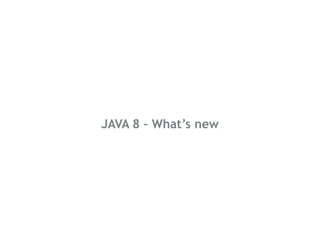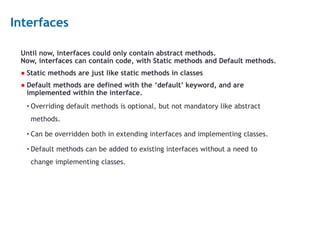Lambda expressions allow implementing anonymous functions more concisely. Interfaces can now contain default and static methods. Streams facilitate functional-style operations on collections of elements. Optional handles null references more gracefully. The Date/Time API replaces the previous Date and Calendar classes. Nashorn allows executing JavaScript code from Java. Various new tools like jdeps were introduced.
























